Axolotl
Chameleon Care Sheet

If you have purchased a veiled chameleon, you may be wondering how to keep them happy and healthy. While you want to provide them with the best living conditions, it’s also important to be aware of some common health concerns that can affect your pet’s well-being. This care sheet is a guide to help you take care of your pet and keep him or her healthy and happy.
Feeding a veiled chameleon
If you want to keep a veiled chameleon, you need to make sure that you provide them with the proper food and environment. This species has a unique diet. They require a mineral-rich diet. Chameleons also need a humid habitat. You can ensure that your chameleon has the proper humidity by using a mister or fogger.
Veiled chameleons are known for their dynamic patterns. These reptiles are also characterized by their helmet-like headpieces and crested ridges above their eyes.
Like most other reptiles, veiled chameleons need a humid habitat. The humidity of their environment should be between 65% and 80%. To achieve this, you can install a drip system in your chameleon’s cage. Make sure that the drip system runs at least twice a week.
You can feed a veiled chameleon a wide range of foods. Some of the most common include insects, fruits, vegetables, and small vertebrates. Keeping them in a healthy diet can help them live a long and healthy life.
You should also be sure to give your chameleon the right amount of calcium. Calcium is important for a chameleon’s health and growth.
Aside from the nutrients and minerals in the food that you give your chameleon, you can also supplement it with vitamins. It is recommended that you give your chameleon calcium rich powder at least twice a week.
Keeping a veiled chameleon in a stress-free environment
If you are planning on keeping a veiled chameleon, you should be aware that they require meticulous care. You need to make sure that they have a stress-free environment, and that they are not deprived of the necessary nutrients.
Chameleons are territorial animals. They will defend their territory against other chameleons. This will lead to disputes over basking space and food.
The best place to keep a veiled chameleon is a small, screened enclosure. An ideal size for an adult male is 2′ long by 2′ wide by 4′ high. For a juvenile, a smaller screened cage is fine.
Make sure that you choose a cage that allows for easy cleaning. Use a non-corrosive metal screen for the top and bottom of the cage. A screened cage allows for proper ventilation, and a screen can prevent paw prints from being left on the wall.
Chameleons are susceptible to disease and parasites. You should be prepared to treat them if they show signs of an infection. Observe their behavior closely to detect signs of illness.
If your veiled chameleon refuses to eat after two weeks, take it to a veterinarian. Chameleons are prone to metabolic bone disease.
These reptiles will need a wide variety of diets. Some common foods include: wheat germ, baby rice cereal, vegetables, pinhead crickets, hydei fruit flies, and oatmeal.
Taking a veiled chameleon to the vet
If you want to give your veiled chameleon the best care possible, you’ll need to get it to a vet. These colorful, hardy reptiles can live up to eight years if you provide them with the proper diet and care.
While these beautiful animals can be quite healthy, they do have their share of parasites. If your veiled chameleon is carrying any kind of parasites, make sure that you take it to a veterinarian as soon as possible.
Parasites such as coccidia, spirochetes, and pinworms can cause diarrhea, anorexia, and weight loss. You should also monitor your chameleon’s feces for signs of internal parasites.
Chameleons are known for their vibrant colors. Their colors change as they age. This can tell you a lot about their health. However, if you’re concerned about your chameleon’s health, see your exotics veterinarian. They can test for any internal parasites and prescribe medications.
During your veterinary exam, your veterinarian will check your chameleon’s ears, eyes, and teeth. He or she may recommend an antibiotic solution for the eye or a vitamin A supplement. The veterinarian will also check your chameleon’s feces.
In addition to your chameleon’s feces, the veterinarian will also examine its body cavity. You may need to consult your veterinarian if you notice any abnormal stools, distension of the abdomen, abnormal movement, or anorexia.
Axolotl
Understanding Fluval Canister Filters: A Comprehensive Guide
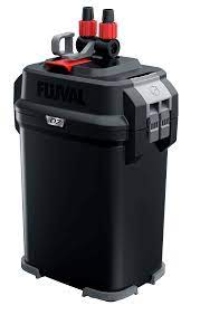
Introduction
Fluval canister filters are an essential part of any aquarium setup. They play a crucial role in maintaining the health and cleanliness of your fish and plants, providing a clear and healthy environment for them to thrive in. In this comprehensive guide, we will explore everything you need to know about Fluval canister filters, from their functions and benefits to the different types available and how to choose the right one for your aquarium.
What are Fluval Canister Filters?
A Fluval canister filter is a type of external filtration system that uses a canister filled with filtration media to clean and filter water in your aquarium. It is a popular choice among aquarium owners due to its efficient and effective filtration, quiet operation, and customizable options.
Functions and Benefits of Fluval Canister Filters
Fluval canister filters have a multi-stage filtration process that removes impurities and contaminants from the water in your aquarium. This includes mechanical filtration, which removes solid waste and debris, biological filtration, which removes toxic nitrogen compounds, and chemical filtration, which removes pollutants and odors. These filters also provide a high flow rate, which helps to improve water circulation and oxygenation, creating a healthy environment for your fish and plants.
Different Types of Fluval Canister Filters
There are several different types of Fluval canister filters available, each designed for specific aquarium sizes and types. These include:
- Fluval 106 Canister Filter
- Fluval 206 Canister Filter
- Fluval 306 Canister Filter
- Fluval 406 Canister Filter
Each of these filters has unique features and capabilities, making it important to choose the right one for your aquarium.
Choosing the Right Fluval Canister Filter
When choosing a Fluval canister filter, it is important to consider the size of your aquarium, the types of fish and plants you have, and your filtration needs. You should also consider the flow rate and filtration capacity of the filter, as well as its ease of maintenance and customization options.
Maintenance and Cleaning
Maintaining and cleaning your Fluval canister filter is an important part of keeping your aquarium healthy and clean. Regular maintenance includes cleaning the filter media, checking the hoses and connections, and cleaning the impeller and motor. It is also important to replace the filter media periodically to ensure its effectiveness.
Conclusion
In conclusion, Fluval canister filters are an essential part of any aquarium setup, providing efficient and effective filtration, improved water circulation and oxygenation, and a healthy environment for your fish and plants. With their customizable options and multi-stage filtration process, Fluval canister filters are a popular choice among aquarium owners. When choosing a Fluval canister filter, it is important to consider the size of your aquarium, your filtration needs, and the types of fish and plants you have. Regular maintenance and cleaning are also essential to keep your filter working effectively and maintain a clean and healthy aquarium environment.
Axolotl
Petsmart Clive: Your One-Stop Shop for All Things Pet

Are you a pet lover looking for the best possible care and attention for your furry friends? Look no further than Petsmart Clive! Our store offers a wide range of products and services to meet all of your pet’s needs. From food and toys, to grooming and training, Petsmart Clive has everything you need to keep your pet healthy and happy.
A Wide Selection of Premium Pet Products
At Petsmart Clive, we understand the importance of providing your pet with the best possible care. That’s why we offer a large selection of premium pet products, including food, toys, and accessories. Whether you’re looking for high-quality dry food, canned food, or treats, we have something to suit every pet’s tastes and dietary needs.
Professional Grooming Services
In addition to providing the best products for your pet, we also offer professional grooming services to keep them looking and feeling their best. Our experienced grooming team can provide a full range of services, including bathing, haircuts, and nail trims. We use only the highest-quality shampoos and grooming products to ensure that your pet is well-cared for and comfortable throughout the entire grooming process.
Expert Training and Behavior Support
At Petsmart Clive, we believe in providing our customers with all the resources they need to care for their pets to the best of their abilities. That’s why we offer expert training and behavior support to help pet owners address any issues they may be facing with their furry friends. Whether you’re dealing with a new puppy or an older pet with behavioral problems, our team of experts can help you find the right solution for your specific situation.
Convenient In-Store Services
In addition to all of the products and services we offer, Petsmart Clive also provides a variety of convenient in-store services to make your life easier. From self-service pet wash stations to in-store pet adoption, we have everything you need to keep your pet healthy and happy.
A Commitment to the Community
At Petsmart Clive, we are dedicated to giving back to the community. That’s why we support local animal shelters and rescue organizations by hosting adoption events and fundraising activities. We also provide educational resources and support to pet owners in the community to help them care for their furry friends to the best of their abilities.
Conclusion
In conclusion, Petsmart Clive is the ultimate destination for all of your pet’s needs. With a wide selection of premium products, professional grooming services, expert training and behavior support, and convenient in-store services, we have everything you need to keep your pet healthy and happy. So why wait? Visit us today and see why Petsmart Clive is the best choice for pet lovers everywhere!
Axolotl
Fancy Bearded Dragons: A Comprehensive Guide to Keeping Them as Pets
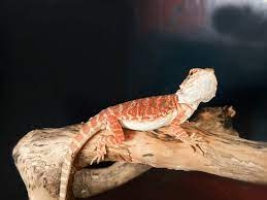
Bearded dragons are one of the most popular reptile pets due to their friendly nature and relatively easy care. These fascinating lizards are often kept as a fancy pet by reptile enthusiasts, but they are not suitable for all pet owners.
Introduction to Fancy Bearded Dragons
Fancy bearded dragons are a morph of the common bearded dragon (Pogona vitticeps), known for their unique patterns, colors, and morphs. They come in a variety of colors, including red, orange, yellow, and brown, and have distinct markings that make them a popular choice for reptile enthusiasts. Unlike their common counterpart, fancy bearded dragons have unique and intricate patterns that make them visually appealing to pet owners.
Types of Fancy Bearded Dragons
There are many types of fancy bearded dragons available in the pet trade, each with its unique pattern and color. Some of the most popular morphs include:
Hypomelanistic
Hypomelanistic bearded dragons are characterized by a lack of black pigmentation, giving them a lighter appearance compared to their common counterpart. This morph is also known for its vibrant colors and patterns.
Translucent
Translucent bearded dragons are a type of hypomelanistic morph that are characterized by a translucent appearance, making their internal organs visible. This morph is a rarer type of fancy bearded dragon, making it highly sought after by pet owners.
German Giant
German giant bearded dragons are the largest morph of the fancy bearded dragon, growing up to two feet in length. They are known for their massive size and gentle disposition, making them a great choice for pet owners who want a large pet reptile.
Leatherback
Leatherback bearded dragons are characterized by their smooth, leathery skin, which is different from the common bearded dragon’s rough skin. This morph is highly sought after by pet owners due to its unique appearance and gentle nature.
Caring for Fancy Bearded Dragons
Keeping fancy bearded dragons as pets requires a significant commitment from the pet owner. Proper care and attention must be given to ensure the health and well-being of these fascinating reptiles.
Housing
Fancy bearded dragons should be kept in a large terrarium with ample space for them to move around and bask. A 40-gallon terrarium is the minimum size recommended for an adult bearded dragon, but larger terrariums are preferred for these active reptiles. The terrarium should be equipped with a heat source, such as a heat lamp, to maintain a temperature range of 80-100°F.
Diet
Fancy bearded dragons are omnivores and require a balanced diet of both insects and vegetables. A diet high in calcium and protein is essential for their growth and health. Some of the best food options for fancy bearded dragons include crickets, mealworms, and green leafy vegetables like kale and collard greens.
Health Care
Fancy bearded dragons require regular health check-ups to ensure they are healthy and free from any illnesses or infections. Regular visits to a reptile veterinarian and proper parasite control are also important to ensure their well-being. Additionally, it’s essential to provide a clean and hygienic living environment for your fancy bearded dragon to reduce the risk of infections and illnesses.
Conclusion
In conclusion, fancy bearded dragons are an interesting and fascinating pet that requires a significant commitment from their pet owners. They are known for their unique patterns and colors, making them a popular choice for reptile enthusiasts. However, it’s essential to ensure that proper care and attention are given to these reptiles to ensure their health.
-
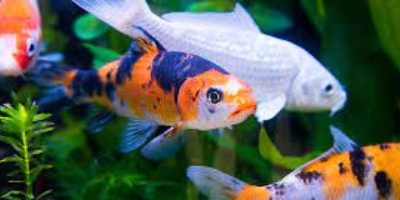
 Exotic1 year ago
Exotic1 year agoChoosing Koi Fish From Petsmart
-

 Dog2 years ago
Dog2 years agoPomeranian Dog Best Bread Information
-
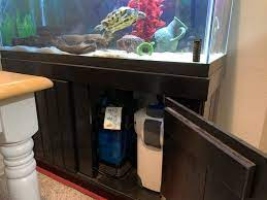
 Turtle2 years ago
Turtle2 years ago8 Best Filters For Turtle Tanks
-
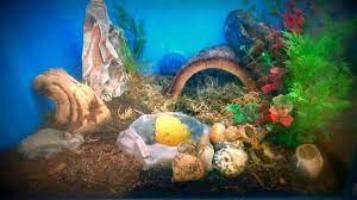
 Turtle2 years ago
Turtle2 years agoPetSmart Crabs – The Right Way to Care For Your Pet Crabs
-
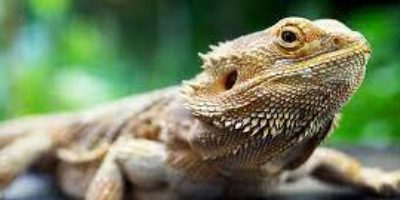
 Exotic10 months ago
Exotic10 months agoBuying a Bearded Dragon For Sale From PetSmart? Read This First
-

 Login10 months ago
Login10 months agoanimal shelters near me
-

 CAT1 year ago
CAT1 year agoBuying a Whisker City Water Fountain
-

 Dog2 years ago
Dog2 years agoLarge Münsterländer And Its Breed In 2022
